Camilla switches to face visor as she meets dogs sniffing out coronavirus
The Duchess of Cornwall has swapped her face covering for a plastic face visor as she met medical detection dogs being trained to sniff out coronavirus.
Camilla, 71, who is back on public engagements, was in Milton Keynes on Wednesday to see trials carried out by a charity training the animals to help prevent the spread of the virus.
In her previous engagements, Camilla has worn a cloth face covering, in accordance with the guidelines from the World Health Organisation and the UK government.
But in a change on Wednesday, she opted for a visor, with one royal correspondent at the event noting “she thinks communication is much easier when you can see someone speak or smile”.
The WHO doesn’t consider COVID-19 to be an airborne disease, but instead says it is caught through droplets and by close contact.
However, some scientists disagree with that and so there is a mixed view of the effectiveness of shields instead of coverings.
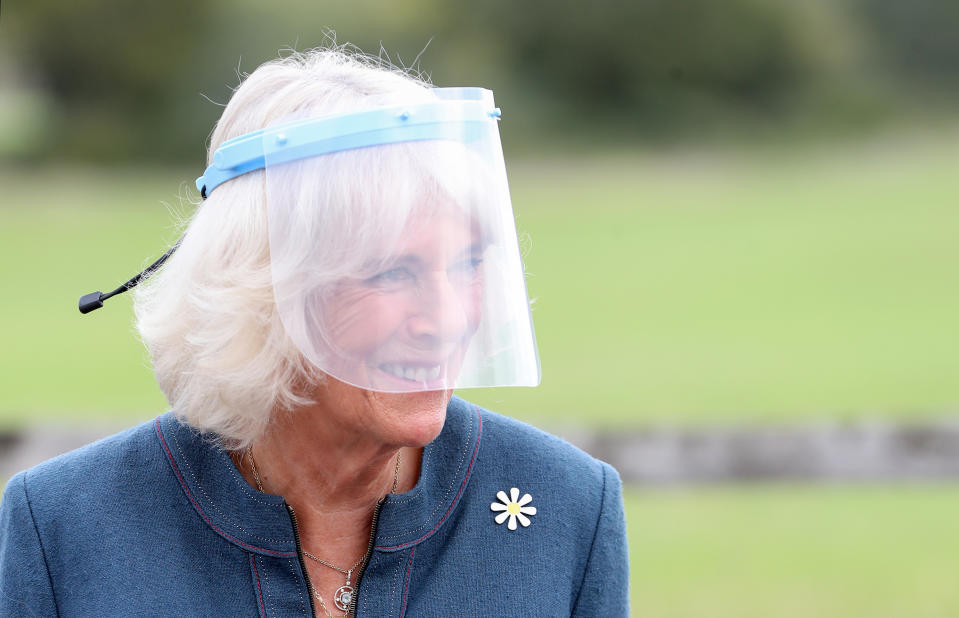
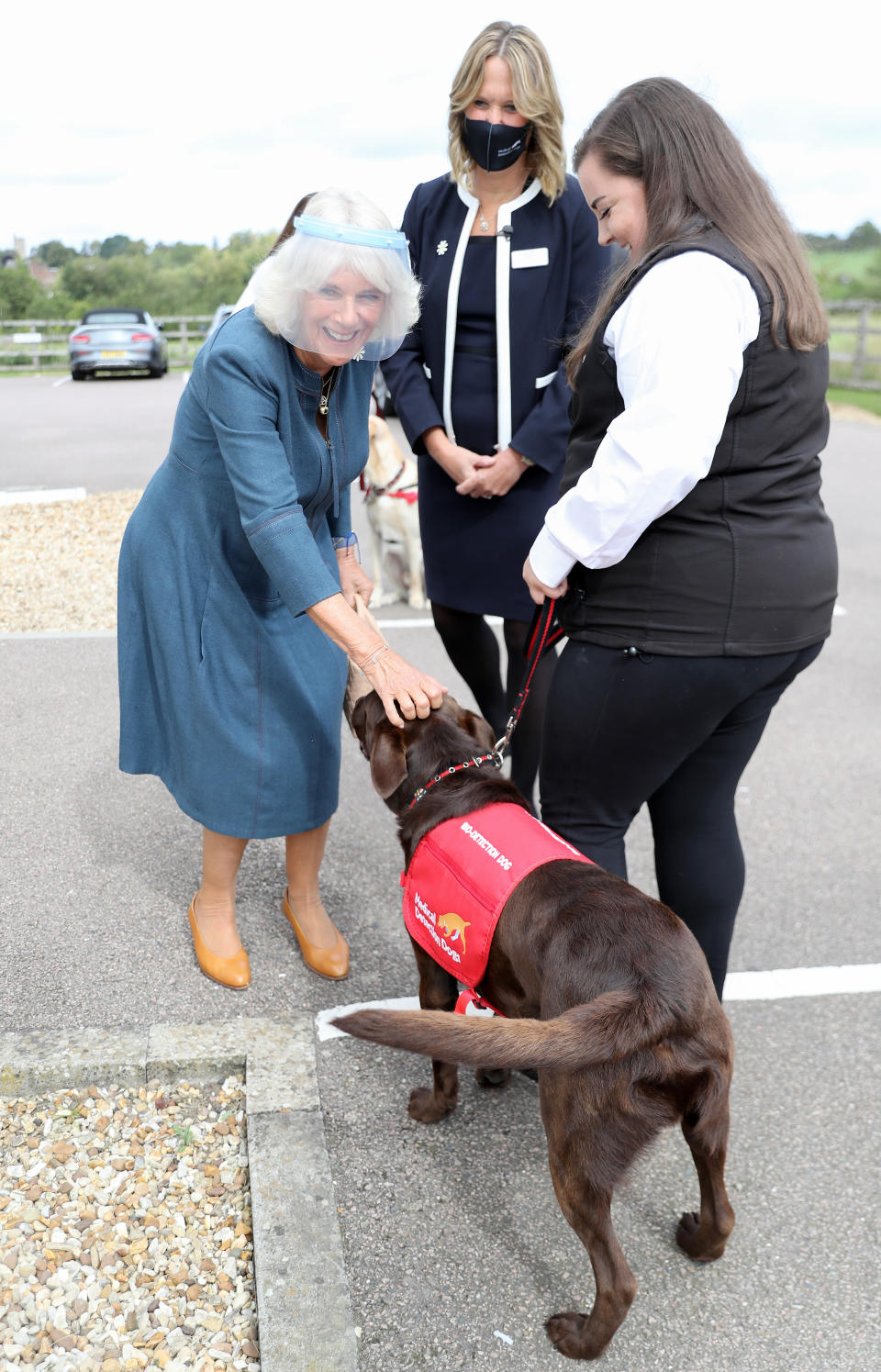

Read more: Harry and Meghan repay Frogmore Cottage renovations - but will it stop criticism?
Speaking about the advantages of shields over coverings, Eli Perencevich, an epidemiologist at the University of Iowa, said in the Journal of the American Medical Association: “While medical masks have limited durability and little potential for reprocessing, face shields can be reused indefinitely and are easily cleaned with soap and water, or common household disinfectants.
“People wearing medical masks often have to remove them to communicate with others around them; this is not necessary with face shields.”
In the US, the Centers for Disease Control and Prevention do not recommend shields, unless they wrap around the head and below the chin.
Matthais Echternach, head of phoniatrics and paediatric audiology at Ludwig-Maximilians-University Hospital Munich, told the BBC that in their trials on use of face shields for singers: “Nearly all of the aerosols were coming around the side of the face shield and reached nearly the same distances as without wearing anything.”

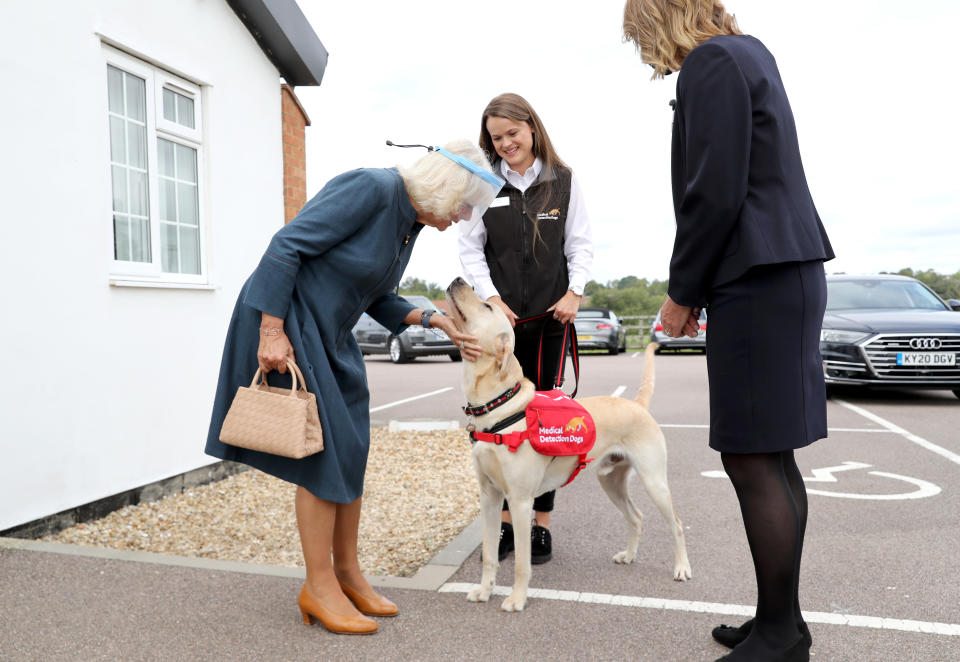
Camilla, who is a patron of the charity Medical Detection Dogs, said after seeing the trials with the dogs that it could be a “game changing moment”.
She said: “As we have seen with how quickly they are learning to sniff this out, it will be a game-changing moment for this country and the world.
“And Britain is leading the way.
“We do need help, we do need more positive samples. We need to appeal to more hospitals to please please give samples, they are going to help thousands of lives.”
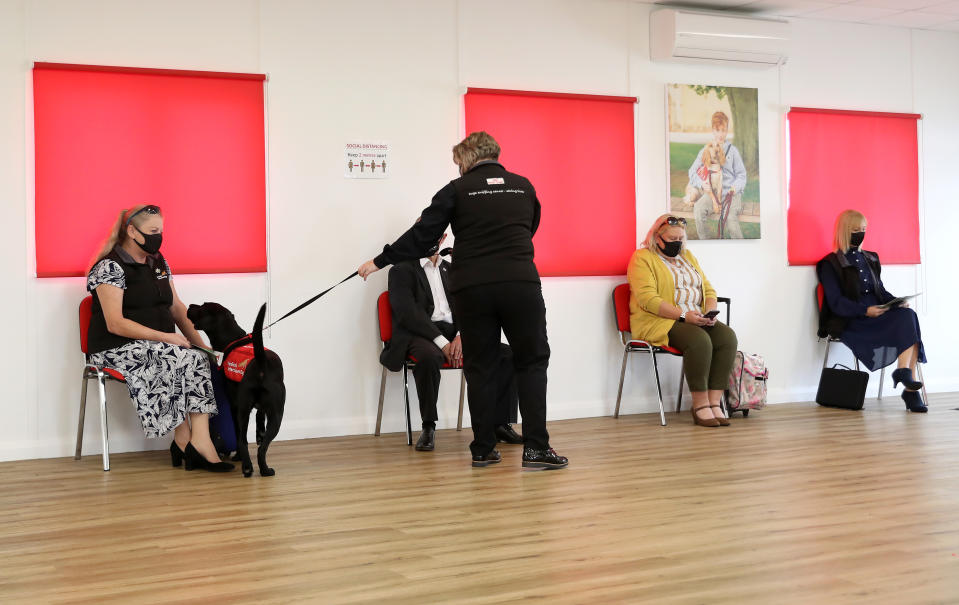
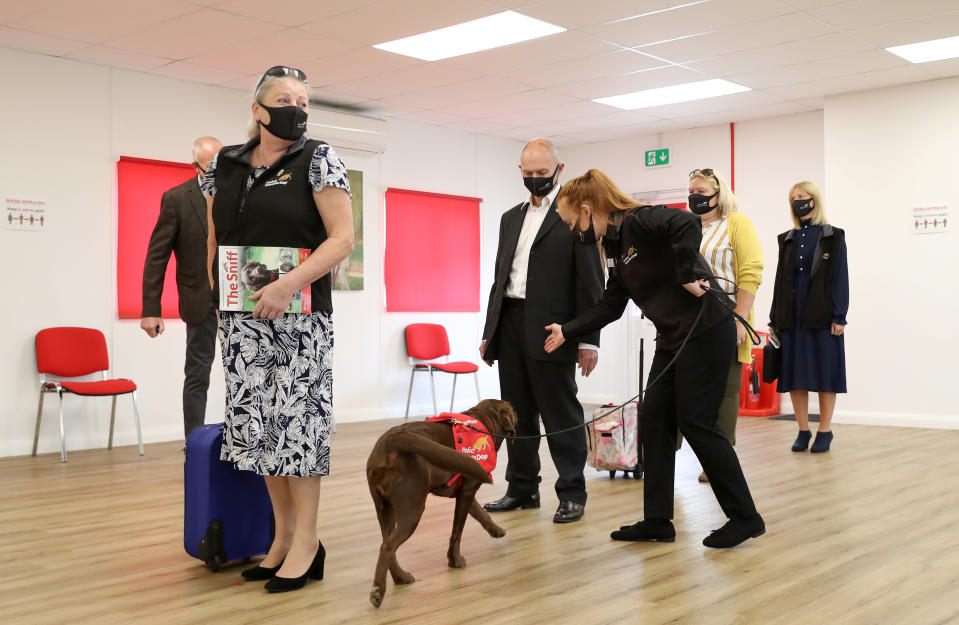
Read more: Popcorn, ma'am? You can now watch drive-in movies on the Queen's Sandringham estate
She also paid tribute to the hospitals which have already made donations of clothes and fabric from people who have tested positive for COVID-19 to help train the dogs.
Dog-lover Camilla, who has two Jack Russell terriers called Bluebell and Beth, was met by working dog Storm – a Labrador Golden Retriever cross - when she arrived at the charity.
In the training room she watched cocker spaniel Asher and fox red Labrador Belle in their trials.
The passive screenings could be used in places like airports, meaning mass screening of people could be possible, even if they are asymptomatic.
Medical Detection Dogs is working with the London School of Hygiene and Tropical Medicine and Durham University on the trial.
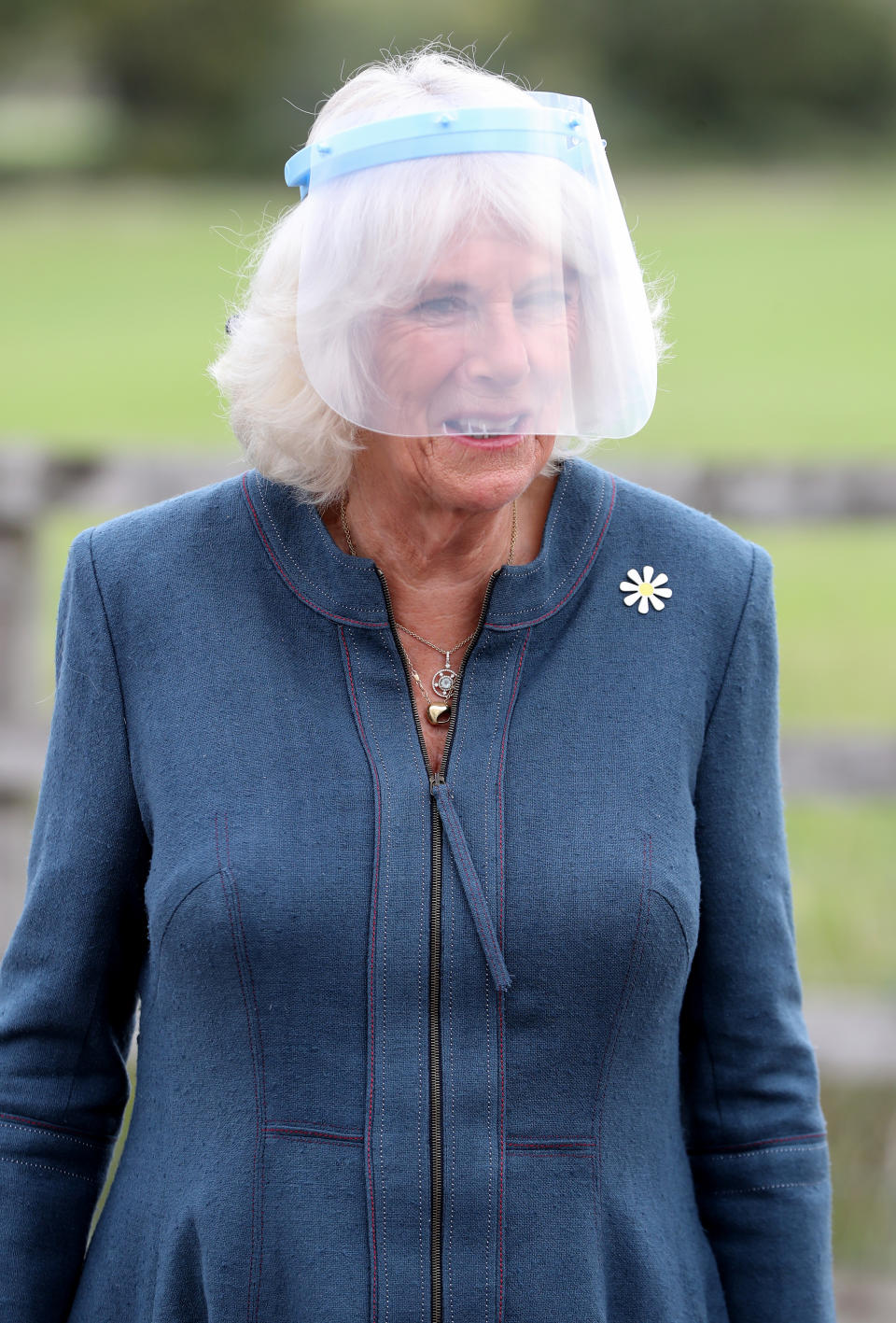

If successful dogs could be deployed to airports within six months to help sniff out the virus, screening some 250 people an hour.
Professor Steve Lindsay, from the Department of Biosciences at Durham University, said: “If we can show that our trained dogs can identify people carrying the virus, but who are not sick, it will be a game changer.
“We will then be able to scale-up the use of dogs at ports of entry to identify travellers entering the country with the virus.
“This could be very important to help prevent a second wave of the epidemic.”
Medical Detection Dogs trains animals to detect the smell of human disease with the aim of improving diagnosis.



